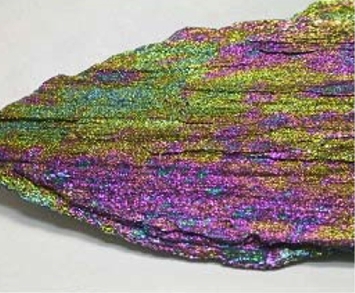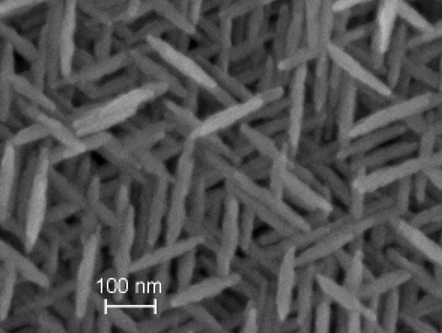

Rainbow hematite from Brazil SEM image of the thin film
Iridescent
iron oxides known as rainbow hematite and turgite are found in a
variety of localities
worldwide,
displays a variety of beautiful interference colors. Usually, a thin
layer of nanocrystals containing aluminum and phosphous coats such as
with hematite, although one example of a
coating
with aluminum arsenate is presented. Infrared spectra of samples with
thicker layers of those nanocrystals show absorption in the phosphate
region. The
thin films that range from
tens to
hundreds of nanometers thick are believed to cause the color.
High-resolution
secondary electron imaging shows that the thin film consists of
nanocrystals
arranged in three directions (120º apart). The rod-shaped crystals have
a width
from 5 to 35 nm and display the same morphology on all samples
irrespective if
they are phosphate or arsenate. The minute
crystals have failed to produce either an X-ray powder diffraction
pattern, an electron
back-scatter diffraction pattern in SEM, or an electron diffraction
ring
pattern
under TEM. Raman spectra are dominated by hematite features.
Infrared ATR spectra of the bulk material show mostly hematite with
occasional minor amounts of goethite and phosphate.

